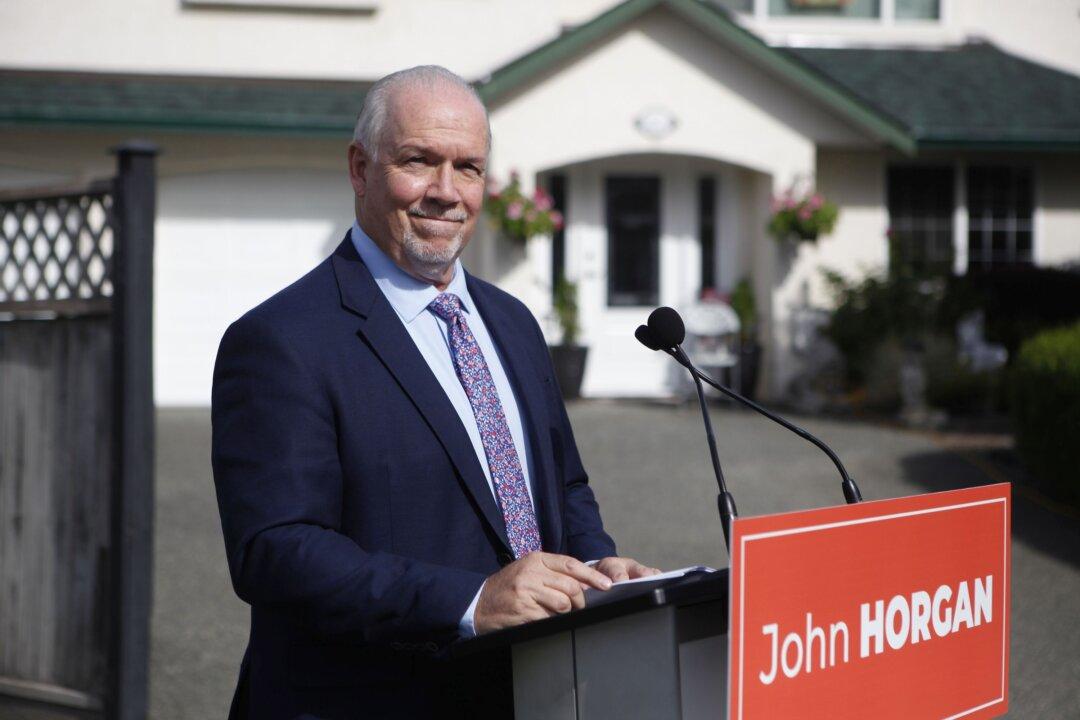As the British Columbia election enters its second week, the B.C. Liberal Party has pledged to eliminate the 7 percent provincial sales tax for one year and place it at 3 percent the year following in a bid to regain power from John Horgan’s NDP.
The reprieve will leave nearly $6.9 billion more in taxpayers’ pockets in the first year and over $3.9 billion in the second year. A family of four with each parent earning $60,000 would save $1,714 and $979 in these years, respectively.





